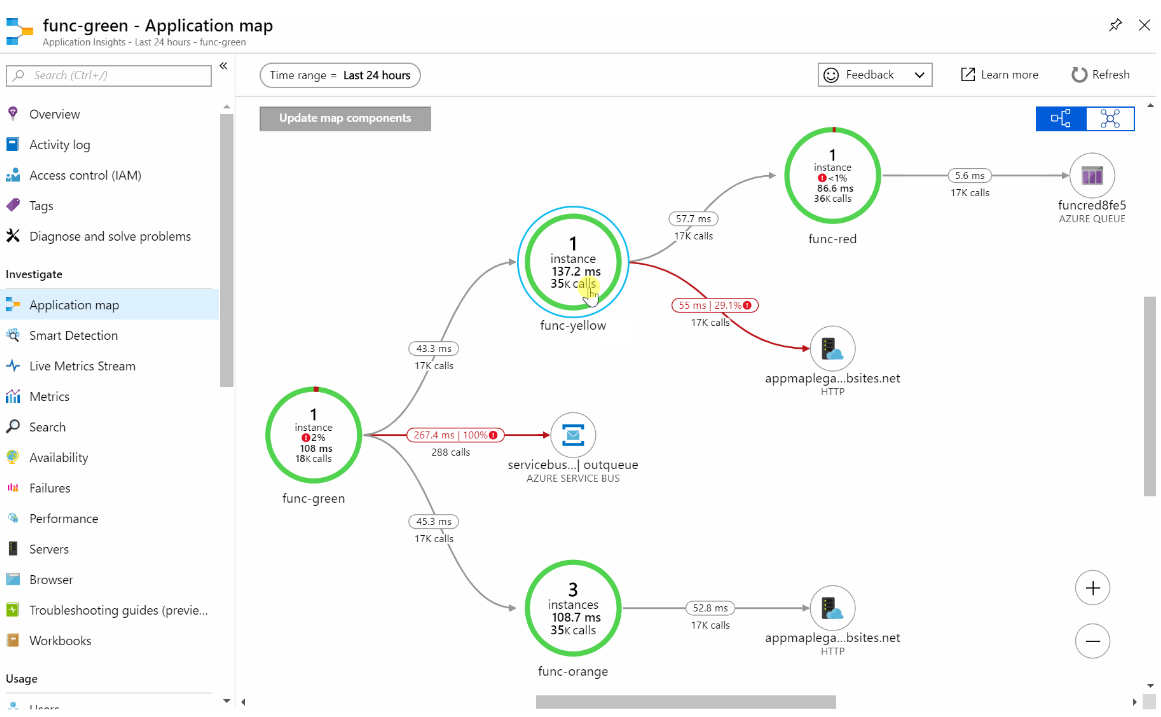| Azure Functions 2 Supports More Platforms |
| Written by Kay Ewbank | |||
| Monday, 08 October 2018 | |||
|
There's a new version of Azure Functions with a new, portable, cross-platform, and more efficient, host runtime. Azure Functions is a service that you can use to set up functions that are activated when specific events happen, such as an HTTP request, an event from a queue, timer or SQL trigger - any event from another service can trigger a function. The main change to the new version is the ability to run it in more environments, including locally on your Mac or Linux machine. The runtime can also be run in a hosted mode outside of the Azure Functions service, with support for Kubernetes and Azure IoT Edge. Another improvement is to the way serverless applications are created, thanks to better integration with Azure Application Insights to give more visibility into distributed tracing. Dependencies are automatically tracked, and cross-resource connections are automatically correlated across several services. You can see all the dependencies and connections in an application map.
The new release also adds support for more modern language runtimes, and the ability to run code from a package file. You can now use .NET Core 2.1 to write functions, and the Azure Functions Team says that this means both a significant performance gain and that you can develop and run your .NET functions in more places. There have also been major changes to how assembly resolution works, giving functions their own load contexts. Away from .NET, there's support for a JavaScript language worker model, and Functions 2.0 now supports both Node 8 and Node 10. The worker approach allows for better version support and iteration, and the developers say it's how they're going to enable new languages going forward. There's a significant change from the previous version on the way that bindings and integrations work, with all binding now being brought in as extensions apart from the core HTTP and timer support. Extensions are just simple packages that can be installed with Functions tooling, and the use of decoupled extension packages allows bindings to be versioned independently of the core runtime.
Elsewhere, there's a new Azure SignalR Service that's a fully managed service that handles the setting up, hosting, scaling and load balancing of your SignalR server. Azure Functions now has an extension for this service, an open source binding hosted by Microsoft Azure in GitHub.
More InformationRelated ArticlesAzure Functions For Serverless Computing
To be informed about new articles on I Programmer, sign up for our weekly newsletter, subscribe to the RSS feed and follow us on Twitter, Facebook or Linkedin.
Comments
or email your comment to: comments@i-programmer.info |
|||
| Last Updated ( Monday, 08 October 2018 ) |



